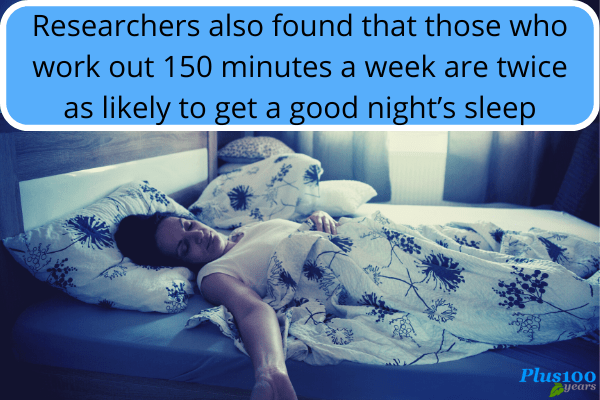
Importance of sleep
Sleep is one of the most important aspects of our lives, yet it is often taken for granted. We spend a third of our life sleeping and most of us do not get the recommended eight hours of sleep each night.
Sleep deprivation has been linked to numerous health problems such as obesity, heart disease, and diabetes.
Poor sleep can also lead to decreased productivity, impaired judgment, and increased stress levels. Getting enough sleep is essential for maintaining good health and well-being.
Importance of REM sleep
The importance of REM sleep is widely accepted, but the mechanism through which it confers benefits is still unknown.
Animal studies suggest that REM sleep deprivation may lead to anxiety, impaired memory, and decreased cognitive function.
In humans, REM deprivation has been linked with increased aggression and psychotic symptoms.
It is hypothesized that REM sleep plays a role in emotional regulation, consolidation of memories, and cognitive processing.
Also Read : Top 14 the best tips to overcome Sleeplessness and Insomnia
Types of common sleep disorders
Sleep disorders are a common problem that can affect anyone. There are many different types of sleep disorders, and each one can have a different impact on your life.
Some of the most common sleep disorders include insomnia, narcolepsy, and sleep apnea.
Insomnia is the most common sleep disorder, and it affects millions of people each year.
Insomnia is defined as the inability to fall asleep or stay asleep. People with insomnia often have difficulty falling asleep at night, and they may wake up frequently during the night.
Narcolepsy is a sleep disorder that causes people to fall asleep suddenly and without warning.
People with narcolepsy often experience excessive daytime sleepiness and cataplexy, which is a sudden loss of muscle control.
What is sleep apnea and how is it diagnosed?
Sleep apnea is a serious sleep disorder that occurs when a person’s breathing is interrupted during sleep and is usually diagnosed with a sleeping test.
The most common type of sleep apnea is obstructive sleep apnea, which occurs when the airway becomes blocked or narrowed, preventing air from flowing into or out of the lungs.
Obstructive sleep apnea can lead to several health problems, including heart disease, high blood pressure, and stroke.
Sleep apnea is diagnosed through a combination of symptoms and tests. A doctor will ask about your medical history and symptoms and may perform a physical exam.
If you are considered at risk for sleep apnea, you may also have a test called polysomnography, which measures brain waves, eye movement, muscle activity, heart rate, and breathing patterns to determine if you have obstructive sleep apnea.
Snoring health problems
It's no secret that snoring can be annoying, but what many people don't know is that it can also be a sign of a more serious health problem.
Snoring is often the result of obstructive sleep apnea, a condition that causes the airway to become blocked during sleep.
This can lead to pauses in breathing and poor-quality sleep. Left untreated, sleep apnea can increase your risk of heart disease, stroke, and diabetes.
If you're snoring more than usual or if you've been having trouble staying asleep, see your doctor for a diagnosis.
The sleep apnea test - what is involved?
Sleep apnea is a potentially serious sleep disorder that occurs when a person’s breathing is interrupted during sleep.
Left untreated, it can lead to health problems such as high blood pressure, heart disease, and stroke.
A sleep apnea test is used to diagnose the condition. The test usually involves an overnight stay in a hospital or special sleep center, where several tests are conducted to measure how well you breathe during sleep.
Also Read: More than 90,000 Daily Health Tips
Alternatively, at-home sleep tests are now available. These can be self-administered using a watch-like device that goes on the wrist and loops around the index finger to provide vital measurements
What are the results of a sleep apnea test?
People who suffer from sleep apnea may find that a sleep apnea test can help diagnose the problem and provide treatment.
Sleep apnea is a condition in which people stop breathing repeatedly during sleep.
This can cause problems with daily life, including difficulty concentrating, Memory loss, and more serious health problems like heart disease or stroke.
A sleep apnea test can measure how often you stop breathing during sleep and help identify the source of the problem.
If you are suffering from sleep apnea, a sleep apnea test may be your best course of action to improve your quality of life.

How is sleep apnea treated?
Sleep apnea is treated with lifestyle changes, such as losing weight if needed and quitting smoking, and with devices that help you breathe better at night, such as CPAP machines.
CPAP
There are many different types of sleep apnea treatments. One common treatment is a Continuous Positive Airway Pressure (CPAP) machine which helps keep the airway open while you sleep. Other treatments include surgery, dental devices, and lifestyle changes.
If you have been diagnosed with sleep apnea, your doctor may have prescribed a CPAP machine.
CPAP, or continuous positive airway pressure, is a device that delivers pressurized air to your lungs while you sleep to keep your airways open.
A CPAP machine can be a life-saving treatment for people with sleep apnea, but it can also be difficult to adjust to at first. Here are some tips for making the most of your CPAP therapy.
Add new comment